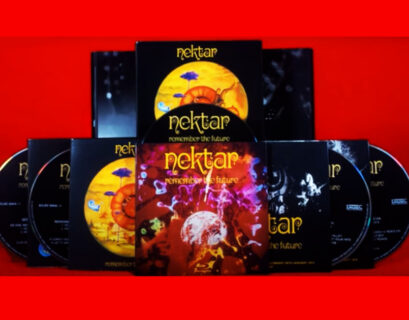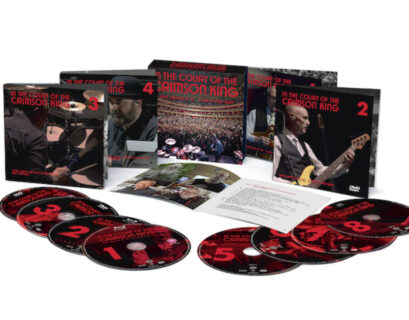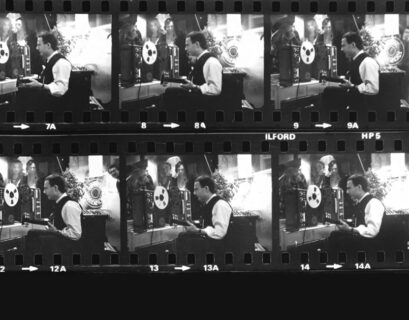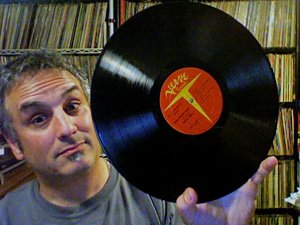It’s the time of year for saving money!
I rarely hear anything from my online friends who are into progressive rock about newer musics from other locales (other than America and Europe) such as Africa and Cuba. Some prog-leaning music fans these days bring up vintage recordings by Fela Kuti periodically — especially the ones with Ginger Baker — and fewer still King Sunny Adé. But interest there seems to end there, as if time stopped. Yet, there is all this other music which happened and continues to happen; I wonder sometimes why the two paths don’t cross more frequently.
Now, I certainly don’t purport to be a super expert on this topic but I do recognize that there is a massive universe of music out there to explore which doesn’t get played out as much as it should in America. So I try to connect some cultural dots when I can (and mea culpa if I make some mistakes along the way! Let’s share the love of education, folks!).
That said, most prog fans love 1980s-era King Crimson and the seminal works of Talking Heads such as Fear of Music and Remain In Light. But — admittedly based on what I see happening in online forums on social media — most don’t seem to get down to the music that influenced those recordings or music that expands on that continuum. Sometimes you’ll see a post about the brilliant Buena Vista Social Club album. I think I saw someone post about one of David Byrne’s productions on his Luaka Bop label. Heck, I think I’ve only seen one post about America’s early rhythm king, Hamilton Bohannon other than the occasional post I’ve made myself. It all seems rather disconnected at times….
Hold on to those thoughts for a moment…
When I learned of some new recordings from groups in Cuba and Ghana, my virtual ears perked up and I requested review samples as they sounded fascinating just reading about them. Today we’ll explore a new release from Cuba’s Okuté. Hailing from Havana, Okuté’s press release gives a concise insight into the group’s and its intent:
“Okuté uncovers deeply rooted pathways at the intersection of Cuban rumba and West African music. Okuté is as unfiltered as Havana itself, where lines blur between the sacred and profane, and between centuries and even millennia of melodies, rhythms and incantations. Lead singer Pedro “Tata” Francisco Almeida Barriel draws not only on traditional rumba, but also his deep knowledge of Arará, Abakua, and Lucumi religious music. Tata’s vocals cascade over the polyrhythms of the ensemble’s famous percussionists — the legendary Vizcaino family, Roberto Sr. and Roberto Jr., are joined by Machito and Ramoncito. Virtuoso trésero Coto and bassist Gaston Joya further lock into syncopations that conjure not only Arsenio Rodriguez, but the changui of Eastern rural Cuba.”
For those of you whom may not remember, last month I reviewed a fascinating and wonderful new boxed set all about Changui (click here to catch up on that in case you missed it).
From Okuté‘s Facebook page we get some additional insights worth noting: “In the Yoruban religion Okuté is the creator of the cold waters that brought shackled Africans to the port of Havana. Here Rumba was born in solares, played on wooden cajons ferried across the waters, its rhythms still resounding centuries later.”
For me, the joy of listening to Okuté is the connective glue between the generations, the propulsive grooves and the instruments which tie them all together. These kind of hypnotic repetitive guitar signatures intertwining with the percussion lead me to make inevitable jumps back to King Crimson’s Robert Fripp and Adrian Belew who worked their guitar wizardry into a signature sound (on the albums Discipline, Beat and Three Of A Perfect Pair) which is still being expanded up on today (Fripp just completed another tour with a version of the band that features three drummers!).
Certain songs on Okuté are already starting to work their earworms into my subconscious including the infectious “Chi Chi Rabako” and the tight-but-loose “Dveuelvame La Voz.”
I love the slow build of “Gaston’s Rumba” with its upright acoustic bass solos at the start, and then aching strings floating atop which are greeted by an off-the-hook distorted electric guitar like solo (I think it might be a “Tres,” a guitar like instrument, perhaps 6-string to create a sound akin to a 12-string Rickenbacker guitar). Whatever it is I suspect it would make Robert Fripp proud and all this happens before the core song actually starts!
If you had Bryan Ferry record a vocal on “Rumbarimbula” it might sound like some Afro-centric twist on vintage Roxy Music. “Orakinyango” actually has sonic textures which make me wonder if Okuté had listened to some of Fripp’s lush soundscapes — this is a beautiful mood piece.
The recording on Okuté is excellent both on the CD quality streams you’ll find on Qobuz (click here) and Tidal (click here). There are some deep bass sounds here plus crisp-but-warm highs and a nice peppery midrange. The vinyl sounds great too. The only thing I was a little disappointed in was that my LP arrived quite warped — and the cover pretty bent up from shipping — although it plays fine. Given the careless cover damage from the mail handling, I wonder if it might have been left in a hot truck along the way. Hopefully your copy won’t have this sort of issue.
Below are some samples of Okute’s music if you don’t have access to Tidal or Qobuz.
Also be sure to check out their website at okuterumba.com
Tune in tomorrow when I’ll explore some fascinating music from Ghana’s The Alostmen.


















